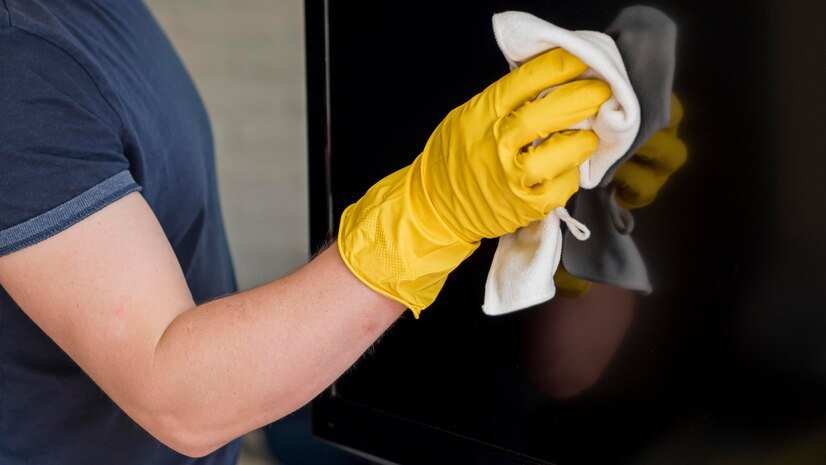When it's seriously time for your potential customers to call you in
The type of work you'll do
Why you'll be the mysterious solution to homeowners when it comes to removing baked on
food debris
The two types of customers you need to know about
The type of work that pays the most
What rating your oven cleaning affects in commercial kitchens
The reason why it's difficult to find employment as in oven cleaner
What you're best to do with your certification if you do want to seek employment
The best place to find any positions for this line of work
The best route to market to get the most out of this course
The only difference to owning your service to working for someone else
The type of products to avoid for commercial oven cleaning What the Control of Substances Hazardous to Health is Why commercial cleaning is so much more laborious than cleaning a domestic oven Why eco-cleaning is not an option for commercial oven cleaning purposes. The regulations that govern food establishments and the equipment they use in their kitchens Why oven cleaners are required in all businesses, despite having a clean as you go policy.
The price range for dip tanks Advice on selecting the best dip tank for purposes you'll be using it for (must be stainless steel for commercial oven cleaning. The different types of dip tanks available and where to source second-hand The best place to get training for using your dip tank When the Transport of Gas Regulations will apply to your vehicle and your insurance policy The different types of chemicals you'll need.
The surfaces you need to be careful with when using acidic cleaning solutions.
The surfaces to use solvent based substances to clean.
Chemical competence and personal safety when working with chemicals.
What to do in the event of an accident.
Advice on chemical storage.
The safety equipment to store with your cleaning products
Removal and assembly of oven doors.
Why you should never spray a chemical solution to the oven cavity after you've applied a cleaning paste
The technique to use for scraping delicate surfaces.
Cleaning hotplates on electric cookers.
Preparation steps with chemical cleaners to make your job easier.
The cleaning process for AGA range cookers.
The cleaning technique for Rayburn cookers.
Cleaning the hobs of both types of cookers.
The parts that can and cannot be removed from the cooker for cleaning.
Why your AGA cleaning service will see a seasonal spike in demand during the summer months.
General appliance cleaning and advice
The cleaning process for using a dip tank
The process involved for dry steam cleaning
What a thixotropic oven cleaner is and where to use it
Why you should never clean oven components with brass brushes
Keeping yourself safe
Environmentally Friendly Cleaning Solutions
The most powerful natural de-greaser for cleaning ovens
Cleaning cookers and parts without the use of your dip tank
The temperature water reaches at boiling point and why this is important for cleaning
Using a steam cleaner on ovens
Discover what an oven cleaning service entails
Why you are best to set up in self-employment
Where to find jobs if you don't want to run your own business
The benefits and pitfalls of employment
Additional services to boost customer satisfaction and retention
When you may need to invest in premises
The initial start up costs for an oven cleaning business
How much of a marketing budget you can expect to require when starting your own
independent business
The Pros of Starting an Oven Cleaning Business
The pros and cons of joining an oven cleaning franchise
How to develop an Online Presence
What your website should include
Lessons Learned:
The different types of insurance products available.
The only type of insurance covered by legislation.
The amount of cover advised for professional indemnity insurance.
What each type of insurance cover protects you against.
The storage equipment you need for your business.
Getting more mileage from your vehicle.
Money saving tips.
The best type of mobile phone that will work wonders for your business.
What the Annual Investment is and the amount you're eligible for.
Important dates you need to know to avoid any penalties from the HMRC.
When you need to register for VAT.
How to account for larger purchases after your first year of trading.
What you can and can't include in your business expenses.
Lessons Learned.
What you need to provide your staff with.
Ensuring your staff are trustworthy.
Training staff to your standards of oven cleaning.
Monitoring the performance of your staff.
Why you cannot consistently rely on the services of a private contractor.





